How Can Aromatherapy Be Done
Aromatherapy has been gaining popularity for its numerous benefits in promoting overall well-being. From reducing stress and anxiety to improving sleep quality and boosting the immune system, essential oils have a wide range of uses.
We will explore what aromatherapy is, how it works, the different methods of aromatherapy, its benefits, safety precautions, and how you can easily incorporate it into your daily life. To know more about where aromatherapy works, click here.
Let’s dive into the world of aromatherapy and discover its wonders!
Key Takeaways:
What Is Aromatherapy?
Aromatherapy is a holistic healing treatment that uses natural plant extracts to promote health and well-being. This alternative medicine approach has gained recognition for its therapeutic benefits by organizations like the Cleveland Clinic.
With roots tracing back to ancient civilizations such as Egypt, China, and India, aromatherapy has been utilized for centuries to address various ailments and enhance mental and physical well-being. The practice involves leveraging the capabilities of essential oils extracted from plants like lavender, eucalyptus, and chamomile to stimulate the senses and trigger responses in the brain that can alleviate stress, improve sleep quality, and even boost immunity.
The therapeutic properties of these essential oils are believed to have a direct impact on the limbic system, the part of the brain responsible for emotions, memories, and behaviors. By inhaling or applying these oils topically, individuals can experience relaxation, mental clarity, and relief from symptoms of anxiety or depression.
How Does Aromatherapy Work?
Aromatherapy works by stimulating the smell receptors in the nose, which then send messages through the nervous system to the limbic system – the part of the brain that controls emotions, memories, and hormone regulation.
When specific essential oils are inhaled, they trigger responses in the limbic system, influencing the release of neurotransmitters like serotonin and dopamine, which are key players in regulating mood and emotions. The limbic system also plays a crucial role in forming and storing memories, so certain scents can evoke powerful recollections and associations, tapping into deep emotional reservoirs. To learn more about aromatherapy methods, check out our comprehensive guide.
The effects of aromatherapy extend beyond just emotions; they can also have a profound impact on the overall well-being of an individual. By modulating the limbic system, aromatherapy can help reduce stress, anxiety, and promote relaxation, thereby enhancing the mental and physical health of a person.
What Are Essential Oils?
Essential oils are concentrated plant extracts that capture the natural scent and flavor of the plant. These oils are extracted through various methods and are composed of volatile molecules that carry the essence of the plant.
One of the key aspects of essential oils is their purity and potency. The extraction process plays a crucial role in maintaining these qualities. Learn more about where is aromatherapy used.
Steam distillation is a common method used to extract essential oils, where steam is passed through the plant material, releasing the aromatic molecules. Find out when aromatherapy can be used.
Alternatively, cold pressing is used for citrus oils, where the oils are mechanically pressed from the fruit rinds. To ensure safety and effectiveness, essential oils are often diluted in carrier oils before application.
How Are Essential Oils Extracted?
Essential oils are extracted from plants through methods such as steam distillation, cold pressing, or solvent extraction. The extraction process ensures that the oils retain their natural properties and potency.
Aromatherapy accessible through steam distillation, a common method where plant material is steamed, and the vapors are condensed into a liquid, separating the essential oil.
Cold pressing involves mechanical pressure to squeeze the oils from the plant material, ideal for citrus fruits.
Solvent extraction uses chemical solvents to extract the oils from delicate flowers or plants.
It’s crucial to use high-quality carrier oils, such as jojoba or coconut oil, to dilute essential oils for safe topical application, maintaining the purity and efficacy of the oils.
What Are the Different Methods of Aromatherapy?
Aromatherapy can be administered through inhalation, topical application, aerial diffusion, or direct application methods. Each method has unique effects on the body and mind, providing various therapeutic benefits.
When inhaling essential oils, such as lavender or eucalyptus, they enter the body through the nose and trigger the olfactory system, which can influence emotions and memories. On the other hand, applying oils topically allows for absorption through the skin, directly impacting specific areas or providing overall body benefits. Aerial diffusion disperses oils into the air, allowing for a more widespread effect that can promote relaxation or improve air quality. Direct application method involves applying oils to acupressure points, benefiting the body both physically and energetically.
Inhalation
Inhalation is one of the most common methods of aromatherapy, where the scent molecules of essential oils are inhaled through the nose or mouth.
Once inhaled, these scent molecules travel through the nasal passages and reach the olfactory bulb, which is responsible for processing smell. The olfactory bulb then sends signals to the limbic system, the part of the brain associated with emotions, memories, and behaviors, triggering specific reactions based on the particular scent.
Topical Application

When essential oils are applied topically, they are quickly absorbed through the skin’s layers and enter the bloodstream, where their therapeutic properties start to work their magic. Whether it’s soothing inflammation, hydrating dry skin, or promoting relaxation, the benefits of topical aromatherapy can be tailored to suit individual needs. The skin’s ability to absorb these oils efficiently ensures that they can have a direct impact on the body’s physiological responses, offering a holistic approach to skincare and wellness.
Aerial Diffusion
Aerial diffusion disperses essential oil particles into the air, allowing them to be inhaled and absorbed by the body. This method sends messages to the brain, triggering reactions in the nervous and endocrine systems.
When inhalation occurs, the essential oils act as chemical messengers, interacting with olfactory receptors in the nasal cavity. These receptors then transmit signals to the limbic system, known as the brain’s emotional center. Here, the oils can evoke responses such as relaxation, alertness, or even mood enhancement. The limbic system is closely linked to the autonomic nervous system, which controls involuntary bodily functions. Therefore, the diffused oils can indirectly impact heart rate, blood pressure, and other physiological processes, illustrating the intricate connection between scent and systemic reactions.
Direct Application
Direct application involves applying essential oils to specific body parts or areas to elicit targeted effects.
This method can initiate a chain reaction in the body, leading to comprehensive benefits. When essential oils are meticulously selected and directly applied, they have the potential to interact with neurotransmitters, promoting feelings of relaxation or take aromatherapy.
For example, applying lavender oil to the temples can trigger a calming effect by influencing the limbic system, which is responsible for emotions and memory. Direct application can stimulate circulation, relieve muscle tension, and even support immune function, showcasing the multifaceted impact of this focused approach.
What Are the Benefits of Aromatherapy?
Aromatherapy offers a range of benefits, including reducing stress and anxiety, improving sleep quality, easing pain and inflammation, and boosting the immune system. These therapeutic effects contribute to overall well-being and health improvement.
One of the key advantages of aromatherapy is its ability to soothe and calm the mind, creating a sense of tranquility and relaxation. The use of essential oils such as lavender, chamomile, and rosemary can help alleviate feelings of stress and anxiety, promoting mental clarity and emotional balance.
The sedative properties of certain essential oils can aid in improving sleep quality by promoting a sense of calm before bedtime. This can be especially beneficial for individuals suffering from insomnia or irregular sleep patterns. where do aromatherapy work
The analgesic properties of some essential oils, like peppermint and eucalyptus, can assist in relieving pain and inflammation in sore muscles or joints. By incorporating these oils into massage oils or diffusers, individuals can experience localized pain relief and enhanced mobility.
Reduces Stress and Anxiety
Aromatherapy is known for its stress-relieving and anxiety-reducing properties, as certain essential oils can positively influence emotions and mood. The calming scents help create a soothing environment that promotes relaxation and mental well-being.
One of the key mechanisms through which aromatherapy alleviates stress and anxiety is by engaging the limbic system in the brain, which is responsible for regulating emotions and memory.
- Essential oils like lavender, chamomile, and bergamot are popular choices for their calming and mood-boosting effects.
- Lavender, for instance, is renowned for its ability to induce relaxation and reduce nervous tension.
- Similarly, bergamot oil can uplift mood and alleviate feelings of stress, while chamomile oil is known for its soothing properties, promoting a sense of calmness and emotional balance.
Improves Sleep Quality
Aromatherapy can enhance sleep quality by promoting relaxation, calming the mind, and regulating body functions. Certain essential oils have sedative effects that aid in falling asleep faster and improving the overall sleep cycle.
One of the key essential oils for better sleep is lavender, well-known for its calming properties that help reduce anxiety and stress, creating a peaceful environment for sleep. Chamomile is another popular choice, known for its soothing aroma which can alleviate insomnia and promote a more restful sleep. Additionally, Sandalwood essential oil can induce a sense of tranquility, which is beneficial for enhancing relaxation before bedtime.
Eases Pain and Inflammation
Aromatherapy is effective in easing pain and inflammation through its ability to interact with the body’s responses and reactions. Certain essential oils possess analgesic and anti-inflammatory properties that can alleviate discomfort and promote healing.
One of the key aspects of aromatherapy is its targeted approach towards pain relief and inflammation reduction. When essential oils are inhaled or applied topically, they can directly influence the nervous system, triggering the release of endorphins which act as natural painkillers. This natural response helps to reduce the perception of pain and promote a sense of well-being. Essential oils like peppermint, lavender, eucalyptus, and rosemary are well-known for their analgesic properties, providing relief from headaches, muscle aches, and joint pain.
Boosts Immune System

When essential oils with antimicrobial properties are inhaled or applied topically, they can help combat harmful pathogens, viruses, and microbes that weaken the immune system. For instance, tea tree oil, eucalyptus, and lavender are known for their antimicrobial effects, which not only protect the body from infections but also aid in reducing inflammation and promoting faster recovery.
Plus fighting off external threats, these essential oils can create a more harmonious internal environment, helping to balance hormones, reduce stress, and uplift the mood. This positive impact on emotional well-being further strengthens the immune system, as stress and negative emotions can compromise its efficiency and leave the body vulnerable.
What Are the Safety Precautions for Aromatherapy?
While aromatherapy offers numerous benefits, it is essential to follow safety precautions to avoid adverse effects. Diluting essential oils, performing patch tests, and consulting healthcare providers before use are crucial steps to ensure safe and effective aromatherapy practices.
Regarding dilution methods, it is recommended to use a carrier oil to reduce the concentration of essential oils, especially for sensitive skin.
Proper dilution ratios play a vital role in preventing skin irritation and other side effects.
Patch testing, where a small amount of diluted oil is applied to a small area of skin, helps determine sensitivity or allergic reactions before widespread application.
Seeking guidance from a healthcare professional, especially for individuals with underlying health conditions or pregnant women, is imperative to address potential risks and maximize the benefits of aromatherapy.
How Can Aromatherapy Be Incorporated into Daily Life?
Incorporating aromatherapy into daily life can enhance well-being and promote relaxation.
By utilizing the power of essential oils in different ways, individuals can truly immerse themselves in the therapeutic benefits of aromatherapy. Whether it’s diffusing calming scents like lavender or chamomile to create a serene home environment, or adding a few drops of uplifting citrus oils to their morning shower routine for an energizing start to the day, the options are endless.
Incorporating essential oils into DIY cleaning products not only helps in eliminating toxins from one’s living space but also adds a refreshing natural aroma. From refreshing living spaces to enhancing overall emotional well-being, the holistic approach of aromatherapy brings a sense of harmony and balance to daily life.
Using Essential Oils in a Diffuser
Utilizing essential oils in a diffuser is a popular method to enjoy aromatherapy benefits. The diffused scents can positively impact emotions, create a soothing ambiance, and improve air quality, enhancing overall well-being.
There are several types of diffusers available in the market, each offering unique benefits. Ultrasonic diffusers use water to disperse the essential oils into the air as a fine mist, also adding moisture to the surroundings. On the other hand, nebulizing diffusers do not require water and disperse pure essential oil particles into the air, making them more potent.
Choosing the right essential oils for diffusion is crucial for achieving desired effects. Lavender oil is well-known for its calming properties, perfect for relaxation and stress relief. Citrus oils like lemon and orange are uplifting and energizing, ideal for boosting mood and productivity.
Adding Essential Oils to Bath or Shower
Enhancing bath or shower experiences with essential oils can promote relaxation, rejuvenate the skin, and uplift the mood. Adding a few drops of aromatherapy oils to the water can create a spa-like atmosphere at home and offer therapeutic benefits.
One of the key benefits of incorporating essential oils into your bath routine is their ability to engage your senses and transport you to a state of deep relaxation. The aromatic properties of these oils can help calm the mind and reduce stress levels, making your bathing experience a moment of pure home aromatherapy tips.
Essential oils are known for their skin-nourishing properties. When added to your bath water, they can hydrate and rejuvenate your skin, leaving it feeling soft and supple. Plus their cosmetic benefits, these oils also possess therapeutic qualities that can aid in relieving muscle tension and soothing aches and pains. Are you wondering where aromatherapy can be found?
Aromatherapy oils, such as lavender or eucalyptus, have a direct impact on mood enhancement and stress relief. The soothing scents can uplift your spirits, ease anxiety, and create a peaceful ambiance in your bathroom. By indulging in a bath infused with essential oils, you not only take care of your skin but also nurture your mental well-being, fostering a sense of calm and serenity.
Creating Homemade Cleaning Products
Making homemade cleaning products with essential oils can promote a healthy environment and enhance indoor air quality. These natural products eliminate harsh chemicals and provide a safe and effective way to clean surfaces while enjoying the benefits of aromatherapy.
Essential oils have been used for centuries due to their antimicrobial properties, making them excellent ingredients for disinfecting surfaces and removing germs. Incorporating essential oils such as tea tree, lavender, or lemon in your DIY cleaning recipes can help create a fragrant and eco-friendly home environment. Not only are these oils effective at killing bacteria and viruses, but they also leave behind a pleasant scent, unlike commercial cleaners loaded with artificial fragrances that may contain harmful chemicals.
Using Essential Oils in Massage or Spa Treatments
Incorporating essential oils into massage or spa treatments can enhance relaxation, relieve muscle tension, and promote overall well-being. Working with a healthcare provider or professional ensures the safe and effective application of aromatherapy oils for therapeutic benefits.
Healthcare providers and professionals possess the knowledge and expertise to select the right essential oils based on individual needs and health conditions. They can tailor massage techniques and oil blends to target specific concerns, whether it be stress relief, improved circulation, or skin nourishment. These experts understand the importance of proper dilution and application methods to prevent any adverse reactions, ensuring a soothing and beneficial experience for the client.
Frequently Asked Questions
How Can Aromatherapy Be Done?
Aromatherapy can be done in a variety of ways, including:
- Using essential oils in a diffuser
- Applying essential oils topically
- Inhaling essential oils directly
- Adding essential oils to bath water
- Creating a room spray with essential oils
- Using essential oils in massage or body treatments
What is Aromatherapy?
Aromatherapy is the use of essential oils to promote physical and emotional well-being. These oils are extracted from plants and have various therapeutic properties that can benefit the body and mind.
Are There Different Types of Aromatherapy?
Yes, there are different types of aromatherapy based on the method of application. Some popular ones include inhalation, topical application, and absorption through the skin in a warm bath.
What Are Some Popular Essential Oils Used in Aromatherapy?
Some popular essential oils used in aromatherapy include lavender, peppermint, eucalyptus, tea tree, and rosemary. Different oils have different benefits, so it’s important to research which ones are best for your needs.
Is Aromatherapy Safe for Everyone?
While aromatherapy is generally safe, it’s important to note that some essential oils may cause irritation or allergic reactions in some individuals. It’s best to do a patch test before using a new oil and to consult with a healthcare professional if you have any medical conditions or are pregnant.
Can Aromatherapy Help with Stress and Anxiety?
Yes, certain essential oils have been shown to have calming and relaxing effects, making them useful for managing stress and anxiety. Some popular oils for this purpose include lavender, chamomile, and bergamot.




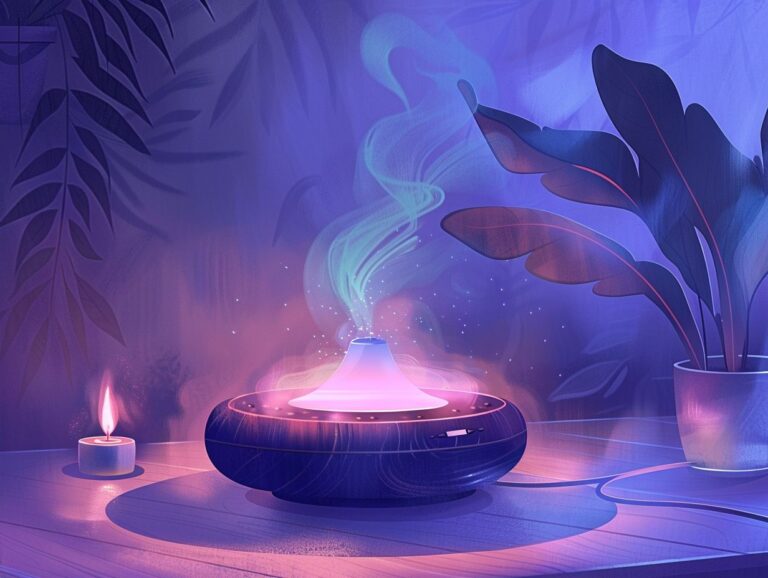
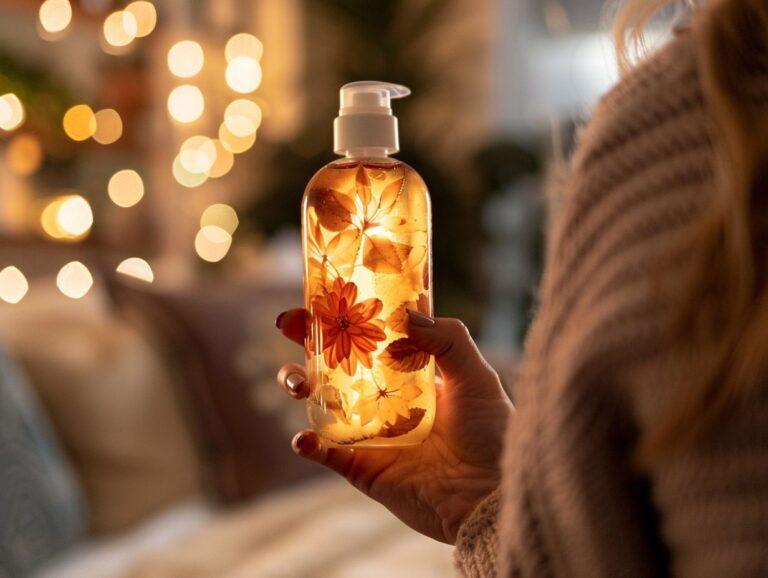
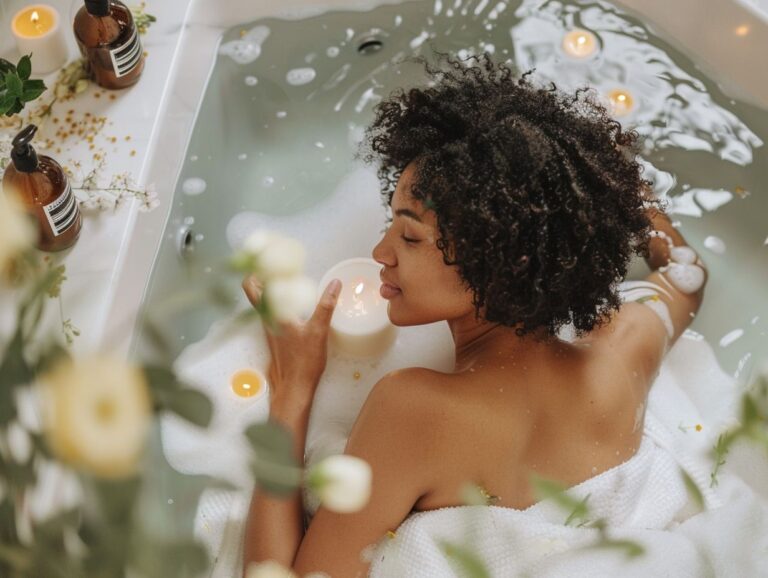
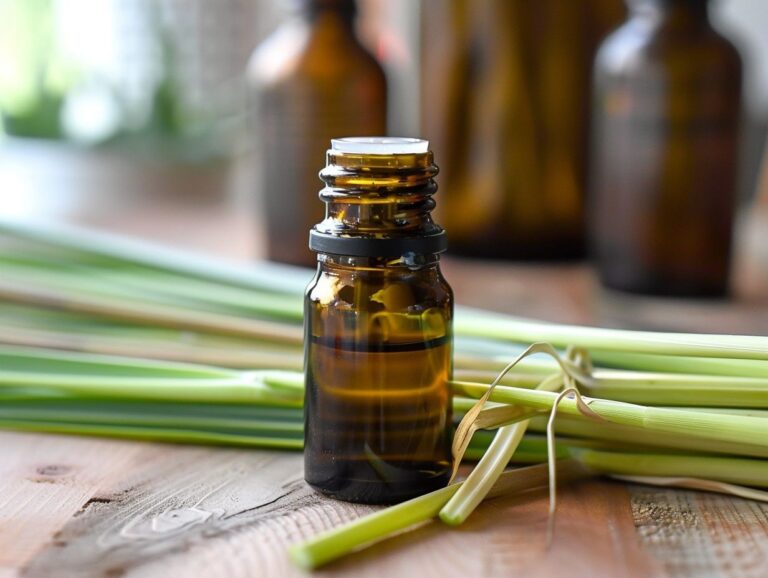
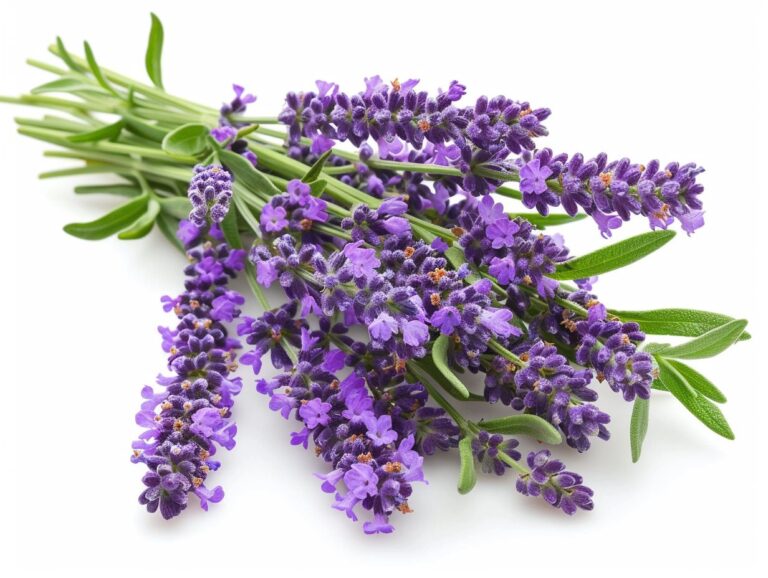
6 Comments